Disclaimer: The views and opinions expressed in this article are mine and do not necessarily reflect those of SS Readers Corner. This post contains spoilers so kindly skim it to avoid too much information.
Top Ten Tuesday is an original meme started by The Broke and the Bookish. Every week there is a specific bookish topic, which will be discussed and shared among bloggers. Today’s topic excites me because my friends & I initiated a book club for a youth organisation close to our hearts. We have wonderful discussion on a particular book every month. I always look forward to our book discussion.
My choice of Ten Books I’d Love to Read with My Book Club are…
‘The Rosie Project’ by Graeme Simsion

Cover by Simon & Schuster; published in 2013
I noticed this novel a couple of months ago when Sony Pictures bought the rights to adapt the novel. My interest piqued when Bill Gates posted about the book on his Facebook. I got a copy at a book sale and am looking forward to reading it next year.
Possible topics of discussion:
- Is there any difference of writing styles between male and female romance author?
- Can true love be found using a formula? What about matchmaking websites?
- Don Tillman’s peculiarity
‘The Hunger Games’ trilogy by Suzanne Collins

Cover by Scholastic; published in 2011
I enjoy reading novels with dystopia theme and ‘The Hunger Games’ trilogy is one of my favourites. I believe the books need to be discussed individually. ‘Mockingjay’ is my favourite book because of its darker themes. Therefore I would love to hear other people’s views on:
- Reality tv shows – compare them to ‘The Hunger Games’
- Propaganda & tokenism – Katniss as a “symbol” to unite other districts
- Post-Traumatic Stress Disorder after winning the Hunger Games – I’d love to read more about Haymitch’s point of view
‘Animal Farm’ by George Orwell
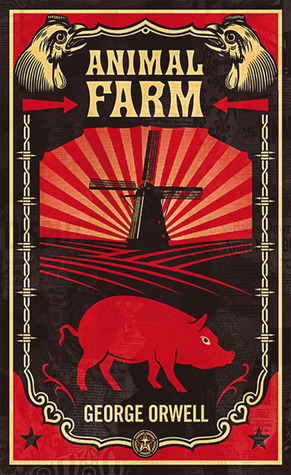
Cover by Penguin; published in 2008
George Orwell’s books are popular for book club discussions and some consider this as a children’s book. So why not use this book to lure more members to come to a book discussion?
Possible topics of discussion:
- Propaganda against communism / Russia
- If George Orwell had used human characters instead of animals, would the novel still be influential?
- How do young readers comprehend the political aspects of the novel? (I’m intrigued that this novel is marketed as a children’s book)
‘My Sister’s Keeper’ by Jodi Picoult
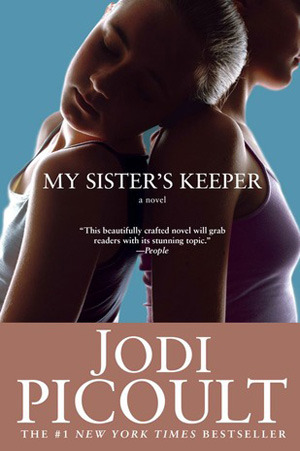
Cover by Washington Square Press; published in 2005
This novel provokes a lot of after-thoughts, such as:
- The novel is told from many different viewpoints. What do you think if it was written in just single (Anna’s) or double viewpoints (Anna’s & Sarah’s)?
- What do you think of designer baby? In this case, a baby was conceived to save an older sibling.
- What do you think of the parenting style?

Cover by Harper Perennial, published in 2006
‘We Need to Talk about Kevin’ by Lionel Shriver
I was emotionally exhausted when I finished reading this book. Nevertheless, I would love to spend 1-2 hours talking about this book. Questions that still linger in my mind:
- Did Kevin respect and love Eva at all?
- Who do you blame for Kevin’s atrocious behaviour? Himself or the parents?
- Contrast the parenting styles of Franklin and those of Eva.
‘Looking for Alaska’ by John Green
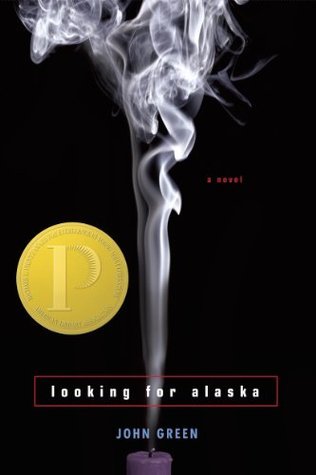
Cover by Speak; published in 2006
I have only read ‘Looking for Alaska’ and ‘The Fault in Our Stars’. I really enjoyed the former than the latter even though ‘Looking for Alaska’ is a much older work and less popular work (this might change once the movie goes into production). I like how human existence is dealt in this book. Some questions I would ask in a book discussion are:
- John Green divided the story into two parts: ‘before’ and ‘after’. What do you think of this structure of storytelling?
- What happened the night Alaska died? Did she kill herself or was it an accident?
- What is the most important question human beings must answer? Choose your question wisely, and then examine how Islam, Buddhism and Christianity attempt to answer it.
‘In Cold Blood’ by Truman Capote
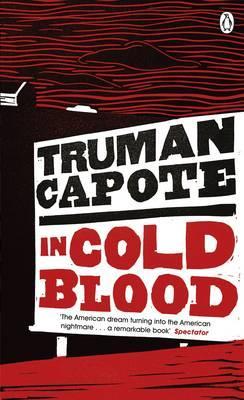
Cover by Penguin; published in 2012
I watched ‘Breakfast at Tiffany’s’ a couple of years ago when I was in a ‘Hepburn’ phase. After watching the movie, I assumed he wrote fluff pieces. Whoa, I was so wrong. This book was compelling – I couldn’t believe that ‘In Cold Blood’ is a true crime! There are many questions that I’d like to explore:
- What kind of men were Richard Hickock and Perry Smith? Compare and contrast their backgrounds.
- Do you think Mr Capote give a just/unbiased representation of Richard Hickock and Perry Smith?
- If the murder victims weren’t as white, prosperous, or well-liked as the Clutter family, do you think this book would be well-received and adapted into a movie?
‘The Ocean at the End of the Lane’ by Neil Gaiman

Cover by Headline Publishing Group; published in 2014
I have only read one of the author’s work – ‘Neverwhere’. I enjoyed the depictions of London but I dislike Richard Mayhew and the pacing of the story. Nevertheless, I am keen to give Mr Gaiman another go.
‘A Monster Calls’ by Patrick Ness

Cover by Candlewick Press; published in 2013
This is another book in my ‘to-be-read’ list. I have never read Patrick Ness’s work before but I purchased this novel after reading about its book-to-movie adaptation. I’d like to recommend this book to my reading group because of (1) the adaptation and (2) the genre – we don’t have a horror book in our list!
‘The Little Prince’ by Antoine de Saint-Exupéry
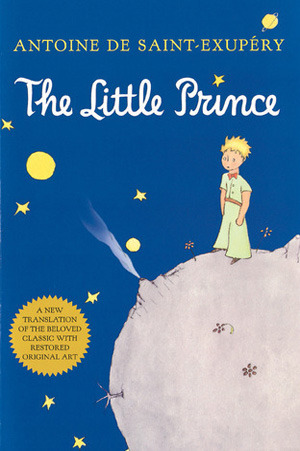
Cover by Harcourt, Inc. Published in 2000
My former housemate gave me a Spanish copy of ‘The Little Prince’ as a parting gift (hablo un poco español :)). I was curious about the book so I searched for it via Google. The book seems to be a favourite choice amongst book lovers. By adding this book to my book club’s reading list, I hope more members will attend the monthly discussions.
Are you part of a book club/reading group? What questions should I ask during a discussion? I would love to read your book suggestions as well as discussion questions. Please share them in the comment box below.












